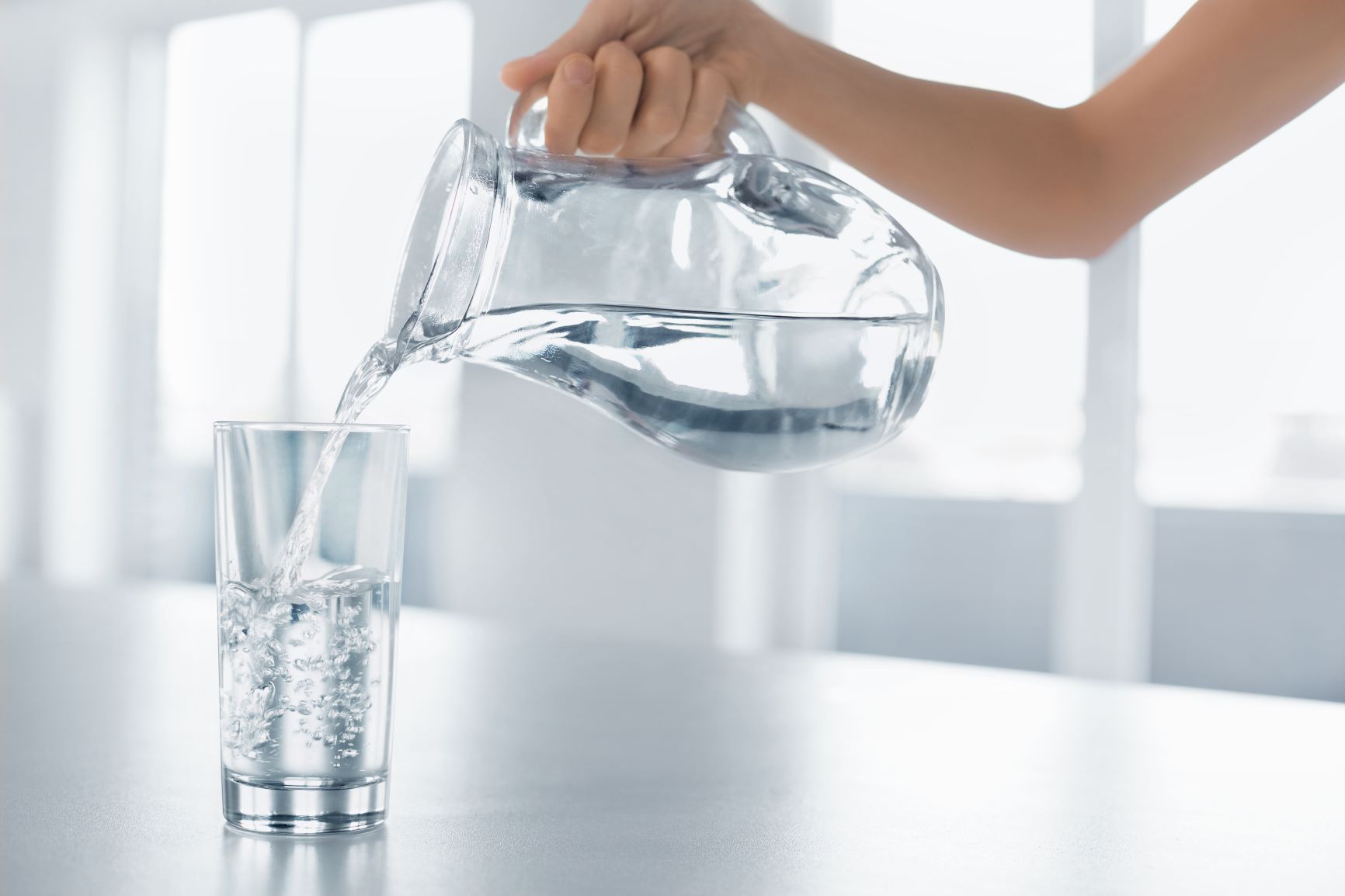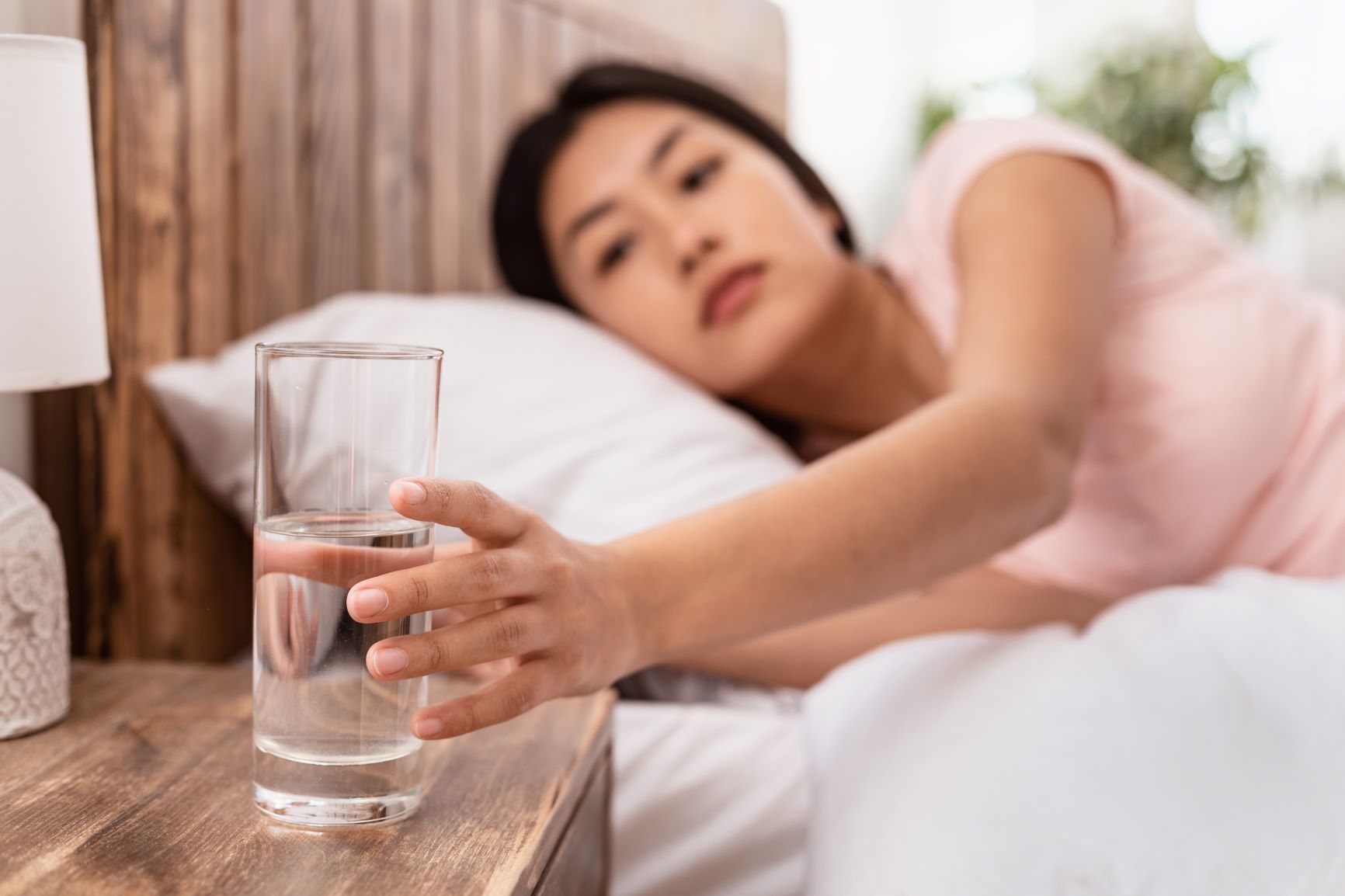Did you know that 75% of Americans are considered chronically dehydrated? That’s hard to believe when you see everyone walking around, everywhere with water bottles in hand.
It’s a rather shocking statistic also given what we know about how important water is for our health. And considering 60% of our bodies are made up of water, it’s no surprise dehydration can have a negative effect on sleep.
So how exactly are dehydration and sleep related?
- Energy Level. One obvious way is that dehydration causes decreased energy levels. Think about if you’ve ever been dehydrated and how it felt. You were likely tired or fatigued because your body was missing a key ingredient, and you may have had a headache or muscle cramps as well.
- Not Enough Sleep. Just as dehydration can have a direct effect on sleep, so too can sleep contribute to dehydration. Studies have shown that people who sleep only six hours a night were found to be more dehydrated than people who slept for eight hours.
- Disrupting Sleep. If you’ve ever woken up to use the bathroom several times at night, you know how disruptive it can be to a good night’s sleep. This frequent urination is also called nocturia, and if you have trouble going back to sleep after getting up, this can be especially problematic.
- Natural processes. When we sleep, we lose fluid through several natural processes, like breathing or sweating. And because we aren’t taking in any fluids when we sleep, scientists believe our body’s internal clocks take over to manage hydration levels. While that sounds like a good thing, it can actually have negative effects if you’re sleep is cut short because your internal clock helps with water retention.

Luckily, there are several things you can do to fight dehydration when sleeping.
First, focus on getting a good night’s rest. Maybe try going to bed an hour earlier than you usually do or starting a strict sleep schedule. If you’re not sleeping well, not only can you get dehydrated, but there are a number of other negative effects like sleep disorders, which could have an even worse effect if you’re also dehydrated.
Next, remember to drink water during the day but not too close to bedtime. Usually avoiding drinking anything an hour or two before you head to bed can help prevent frequent trips to the bathroom during the night.
Finally, if you know you’re likely to get up in the middle of the night, try doing as little as possible during that time so it will be easier to fall back asleep. Don’t turn on a light or check your phone because light tells our bodies it’s time to wake up. And if you know you will have trouble getting back to sleep, consider finding a routine that can help you get back to sleep easier, like listening to nature sounds or meditating.
Dehydration is no joke, and it can seriously affect your health in multiple ways. And when you get thirsty, that’s your body telling you that you’re already dehydrated so remember to drink a lot of water throughout the day—experts recommend 11-15 cups per day—so you can stay hydrated and get your best night’s sleep.
